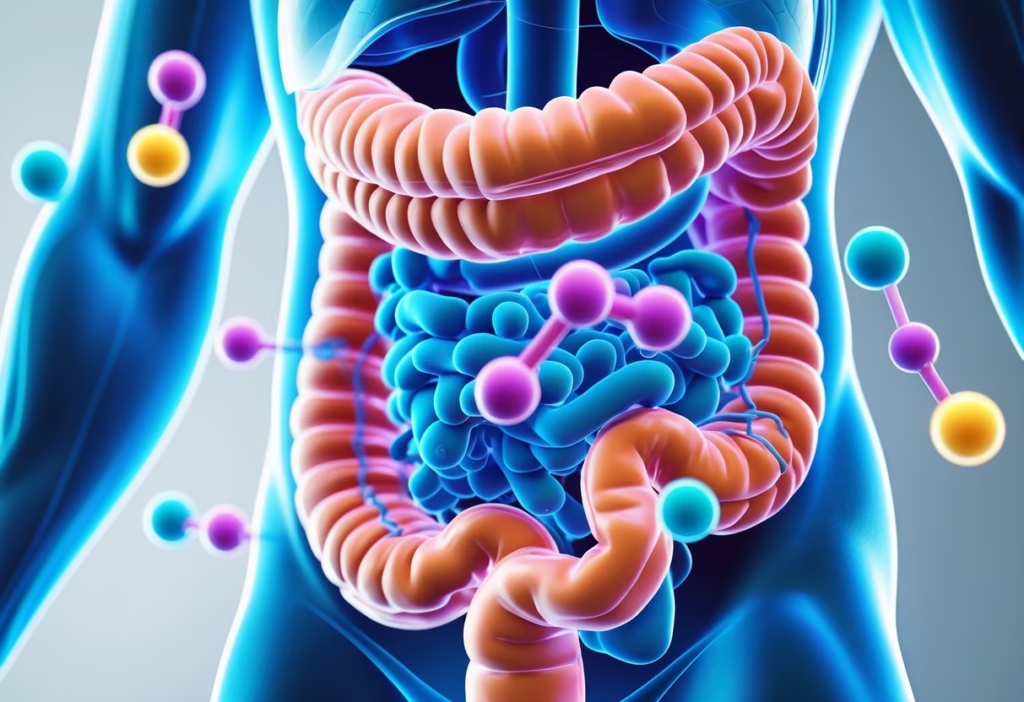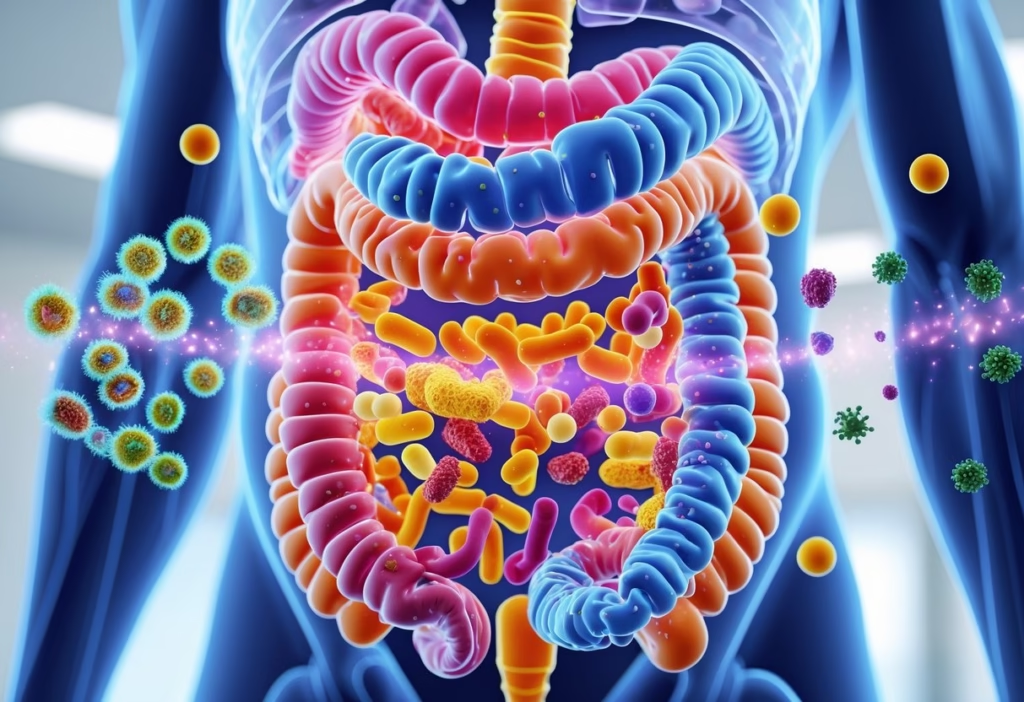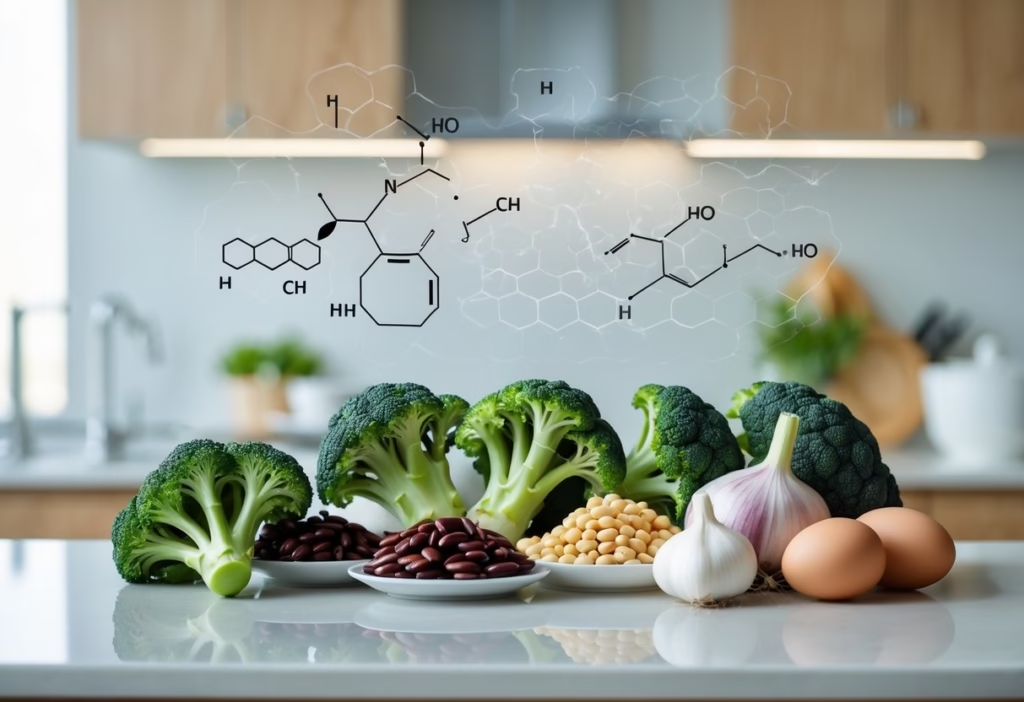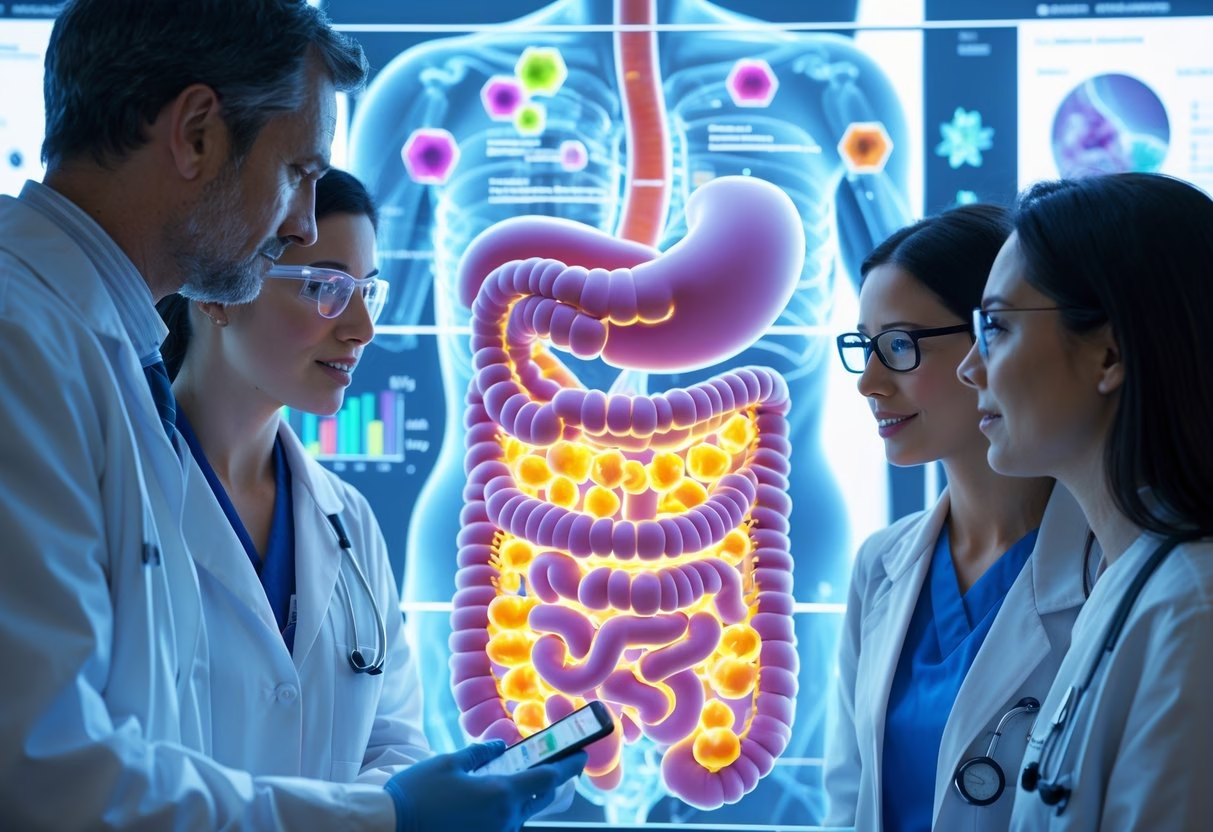Let’s be honest—everyone passes gas, but most people never really stop to wonder why some farts are just so much worse than others. Most intestinal gas is actually pretty much odorless, but those truly nasty smells? They come from a few specific chemical compounds created during digestion.

The main offenders behind smelly gas are sulfur-containing compounds, especially hydrogen sulfide, which gives off that infamous rotten egg stench. Only about 1% of the gas you let out actually has a smell, but when it does, it’s usually thanks to these sulfur compounds.
How bad your gas smells depends on a bunch of things: the bacteria living in your gut, the foods you eat, and even your overall digestive health. That’s why gas odors can change from person to person—or even day to day for the same person.
Chemical Compounds Responsible for Flatulence Odor

Sulfur compounds make up a tiny fraction of your gas—just 1%—but they’re responsible for almost all the stink. Hydrogen sulfide is the main culprit, but methanethiol and dimethyl sulfide add their own weird twists to the scent.
Hydrogen Sulfide: The Main Source of Smelly Gas
Hydrogen sulfide is what gives most smelly farts that unmistakable rotten egg vibe. Bacteria in your intestines make this colorless gas when they break down proteins with sulfur in them.
Researchers have found that the more hydrogen sulfide you have, the worse your gas smells. Higher concentrations mean a stronger, nastier odor—no surprise there.
On average, you’ll find about 1.06 micromoles per liter of hydrogen sulfide in a typical sample of intestinal gas. That’s more than any other sulfur compound in your farts.
Both your own cells and gut bacteria can make hydrogen sulfide. The bacteria turn sulfur-containing amino acids like methionine into this stinky gas as part of their digestion process.
Methanethiol and Dimethyl Sulfide Contributions
Methanethiol is the runner-up when it comes to sulfur compounds in your gas, showing up at about 0.21 micromoles per liter in most samples.
Instead of rotten eggs, methanethiol gives off a smell that’s more like old cabbage or even fish. Not exactly pleasant, but at least it’s…different?
Dimethyl sulfide is the third major sulfur compound, found at around 0.08 micromoles per liter. It adds a bizarrely sweet, almost corn-like aroma to the mix.
All these compounds blend together to make the unique “signature” scent of each person’s flatulence. It’s a weirdly complex cocktail, honestly.
Sulfur-Containing Compounds in Flatulence
Different sulfur compounds make for different stinks in your gas. The variety depends on how your gut bacteria process various sulfur-rich foods and amino acids.
Intestinal bacteria that produce sulfur compounds are the main reason farts can be so smelly. These microbes break down proteins and churn out a range of sulfur-based molecules.
The big players among sulfur compounds:
- Hydrogen sulfide (H₂S)
- Methanethiol (CH₃SH)
- Dimethyl sulfide (C₂H₆S)
- Other minor sulfur derivatives
Bacteria use the amino acid methionine as a starting point, transforming it into the various sulfur gases found in your flatulence.
Minor Odorous Compounds in Intestinal Gas
Sulfur gases dominate, but they’re not alone in making your gas smell. Other compounds play smaller roles, adding subtle hints to the overall aroma.
Organic acids and nitrogen-containing molecules show up in much tinier amounts than sulfur compounds, but they still tweak the smell a bit.
Zinc acetate can get rid of sulfur gases, but it doesn’t totally remove all the odor. That just proves that non-sulfur compounds do contribute a little, even if they’re not the main problem.
Activated charcoal takes things a step further by absorbing both sulfur and non-sulfur compounds, pretty much wiping out all flatulence odor. So, sulfur really does do most of the heavy lifting (or, uh, stinking) here.
Role of Intestinal Bacteria and Gut Microbiome

Your gut bacteria are the real masterminds behind the chemicals that make your gas smell. They ferment stuff you can’t digest, and the mix of bacteria you have determines both how much gas you make and how strong it smells.
Gut Bacteria Fermentation and Odor Production
Certain gut bacteria species are flatulence factories, thanks to their fermentation skills. Bacteroides, Ruminococcus, Roseburia, Clostridium, Eubacterium, Desulfovibrio, and Methanobrevibacter are some of the biggest players in this gas game.
These bacteria chow down on undigested carbs that end up in your colon. Fermentation turns those leftovers into hydrogen, carbon dioxide, and methane.
Sulfur compound production kicks in when gut bacteria ferment sulfur-rich foods. Hydrogen sulfide from these bacteria can even trigger inflammation—plus, it’s the main reason your gas smells like rotten eggs.
Bacteria don’t work alone; they feed off each other’s waste products, creating a whole chain reaction of gas production throughout your gut. It’s kind of wild how interconnected it all is.
Microbiome Diversity and Gas Profiles
The makeup of your microbiome shapes the kinds and amounts of gas you produce. People with a well-balanced gut usually have less stinky gas than those with a more chaotic bacterial population.
Your unique microbiome determines your gas “signature”. Different combinations of bacteria mean everyone’s gas smells a little different—sometimes a lot different.
Changing your diet can shift your microbiome and, in turn, the way your gas smells. Eating more fiber can boost the good bacteria, but you might notice more gas at first while your gut adjusts.
Antibiotics can mess with your microbiome’s balance, often causing temporary changes in both how much gas you produce and how it smells. Once your gut bacteria bounce back, things usually return to normal.
Small Intestinal Bacterial Overgrowth (SIBO) Impact
SIBO happens when too many bacteria move into your small intestine, where there usually aren’t many. This messes with normal digestion and gas production.
With SIBO, bacteria start fermenting food too early in the process. That leads to more gas—plus, it tends to smell much worse than usual.
SIBO symptoms include way more flatulence, bloating, and especially foul-smelling gas. Gut conditions like IBS can also lead to extra fermentation and more sulfur compounds.
Doctors usually treat SIBO with antibiotics to bring the bacterial population back down. When that works, people often notice less gas and a big improvement in odor.
Dietary Factors Influencing Flatulence Smell

Your diet has a direct effect on how your gas smells, thanks to the specific chemicals in different foods. Sulfur-rich foods are especially notorious for causing the worst odors when gut bacteria break them down.
Sulfur-Rich Foods and Cruciferous Vegetables
Cruciferous veggies like broccoli, cauliflower, Brussels sprouts, and cabbage are some of the worst offenders for smelly gas. They’re packed with glucosinolates, which break down into sulfur compounds that smell like rotten eggs.
These veggies also have raffinose, a sugar humans can’t fully digest. When gut bacteria ferment it, they produce hydrogen sulfide gas—so, more stink.
Common cruciferous vegetables that can amp up gas odor:
- Broccoli
- Cauliflower
- Brussels sprouts
- Cabbage
- Kale
- Radishes
The amount of sulfur varies between these veggies. Brussels sprouts and cabbage usually top the list for the strongest smells, while broccoli and kale are a bit milder.
Proteins, Beans, and Amino Acids
Foods high in protein—like meats and eggs—contain sulfur-rich amino acids that gut bacteria love to break down. Methionine, in particular, turns into methanethiol, which smells an awful lot like rotten cabbage.
Beans are a double whammy: they have protein and complex carbs that your body can’t digest completely. That gives bacteria plenty to work with, resulting in some pretty memorable gas.
High-protein foods that can make your gas smell worse:
- Red meat
- Eggs
- Fish
- Poultry
- Legumes and beans
How your body breaks down these amino acids depends on your personal mix of gut bacteria. Some people just end up with stronger-smelling gas after a protein-heavy meal, and honestly, it’s not really their fault.
Impact of Dairy Products and Lactose Intolerance
Dairy products hit everyone differently, but for lactose-intolerant folks, the aftermath can be… memorable. If you can’t digest lactose, eating milk, cheese, or even yogurt means undigested lactose slides right into the colon.
There, the bacteria go to town, fermenting that sugar and pumping out gases with a noticeably sour, acidic smell. It’s not the classic rotten egg vibe you get from other foods—this is its own special brand.
The bacteria responsible for breaking down lactose make different compounds, so the odor profile changes.
Dairy products that commonly cause gas:
- Milk
- Cheese
- Ice cream
- Yogurt (sometimes, for some people)
Even if you aren’t lactose intolerant, high-fat dairy can still make your gas stink. Fats slow down digestion, giving bacteria more time to work their magic.
Onions, Corn, and Dietary Patterns
Onions are notorious for their sulfur compounds—thiosulfinates, if you want to get technical. Garlic, leeks, and shallots share these, too.
The stronger the onion flavor, the more sulfur you’re dealing with. So, if you love biting into raw onion, well, you might notice the effect later.
Corn’s a different beast. Its complex carbs can be hard to digest for some people, so bacteria in your gut get to fermenting, which means more gas.
Dietary patterns that increase gas odor:
- High-protein, low-carb diets
- Sudden increases in fiber intake
- Eating big meals super fast
- Mixing lots of gas-producing foods at once
If you want to avoid the worst odors, try easing new high-fiber foods into your diet. Your gut bacteria need a little time to adapt, or they’ll rebel with some seriously stinky results.
Digestive Health Conditions Affecting Gas Odor

Digestive disorders can really shake up the smell and amount of gas you produce. Usually, these issues come from malabsorption, too many bacteria in the wrong place, or inflammation messing with how your gut breaks down food.
Irritable Bowel Syndrome and Flatulence
Irritable bowel syndrome (IBS) changes the way your gut moves and how bacteria ferment food. If you have IBS, you probably know about the extra gas and the not-so-pleasant odors that come with it.
IBS causes weird muscle contractions in your colon, which can trap gas and give bacteria more time to do their thing.
Common IBS gas symptoms include:
- More frequent flatulence
- Stronger, sulfur-like odors
- Bloating and feeling puffy
- Gas with abdominal pain
People with IBS often have different gut bacteria than average. This imbalance means more hydrogen sulfide and other smelly compounds get made.
Bowel habits in IBS swing from constipation to diarrhea. Either way, it changes how much gas you make and how bad it smells.
Celiac Disease and Malabsorption Issues
Celiac disease damages your small intestine when you eat gluten. This damage blocks nutrient absorption, letting undigested food end up in your colon.
Colonic bacteria feast on these leftovers, fermenting proteins and carbs and producing some especially foul-smelling gases loaded with sulfur.
Celiac-related gas characteristics:
- Strong, lingering odors
- Lots of gas after gluten
- Gas plus diarrhea
- Bloating and cramps
Because celiac disease damages the intestine, you don’t make enough enzymes. Without them, food doesn’t get broken down all the way, so bacteria have more to ferment.
Digestive disorders like celiac can totally change your gas game. People often see improvement once they ditch gluten for good.
Lactose Intolerance and Dairy Effects
Lactose intolerance happens when you don’t make enough lactase enzyme to break down milk sugar. So, undigested lactose heads straight to your colon, where bacteria go wild.
This process creates a lot of hydrogen gas and acids, making gas that smells sour and sometimes a little sulfurous.
Lactose intolerance gas patterns:
- Gas shows up 30 minutes to 2 hours after dairy
- Bloating and diarrhea are common
- Sweet or sour smell, sometimes sulfur mixed in
- Cramps and stomach pain
How bad it gets depends on how much lactase you still have. Some can handle a little dairy, but others react to even a tiny bit.
Lactose intolerance often means more bloating and smelly gas because undigested sugar feeds bacteria in the large intestine.
Other Conditions: SIBO and Bowel Changes
Small intestinal bacterial overgrowth (SIBO) means bacteria multiply where they shouldn’t—in your small intestine. This leads to abnormal fermentation higher up in your gut.
SIBO causes gas to form earlier in digestion, often with a super strong sulfur or rotten egg smell. That’s hydrogen sulfide at work.
SIBO gas characteristics:
- Bloating that gets worse as the day goes on
- Gas that reeks of sulfur or rotten eggs
- Lots of gas, even from simple foods
- Stomach pain and changes in bowel habits
Inflammatory bowel diseases like Crohn’s and ulcerative colitis also mess with gas production. These conditions change your gut bacteria and how your intestines work.
People with these issues often deal with:
- More bacterial fermentation
- Poor nutrient absorption
- Chronic inflammation that disrupts digestion
- Weird bowel movement patterns
Inflammation damages the gut lining and throws digestion off balance. The result? More gas, and it usually stinks more than usual.
Other Causes and Contributing Factors
While sulfur compounds tend to make gas smell the worst, plenty of other things affect how much gas you make and how it smells. Swallowing air, how your gut moves food, and even medications all play a part in the story.
Swallowed Air and Burping
Turns out, swallowing air adds up to about 2 quarts of gas a day. Chewing, talking, drinking—all of it brings in air, but most of it leaves through burping, not the other end.
If you eat fast or chew gum, you’ll swallow more air. That extra air can make its way through your gut and add to the gas you pass.
Common air-swallowing activities:
- Talking during meals
- Drinking fizzy drinks
- Chewing gum or sucking on candy
- Using straws
Swallowed air is mostly nitrogen and oxygen, which don’t really smell. But they do add to the total gas you have to get rid of.
Role of the Small and Large Intestine
Your small and large intestines split the job of making and shaping gas. Food that doesn’t get digested in the small intestine heads to the large intestine, where bacteria break it down.
In the large intestine, bacteria ferment leftover carbs and fiber. That’s where most of the hydrogen sulfide and other stinky compounds are born.
If something blocks your intestines, gas can get trapped and digestion slows down. That gives bacteria even more time to work, making the smell worse.
Everyone’s gut bacteria are a little different, so some people just naturally have more sulfur-producing bugs. It’s a weirdly personal thing, really.
Medications, Lifestyle, and Probiotics
Antibiotics can disrupt normal gut bacteria. Sometimes, when helpful bacteria die off, the not-so-helpful ones take over and make gas smell even stronger.
Simethicone breaks up gas bubbles in your digestive tract. That makes it easier to pass gas, though it doesn’t really stop gas from forming in the first place.
Factors that influence gas smell:
- Medications: Antibiotics, pain relievers, fiber supplements
- Lifestyle: Exercise levels, eating speed, stress
- Probiotics: Help restore healthy gut bacteria balance
Probiotics can help you bounce back after antibiotics or a stomach upset. They work by nudging your gut bacteria back toward a healthier balance.
Different strains of probiotics might reduce how much gas you make, or even change the way your gas smells. It’s not always a one-size-fits-all solution, but sometimes a little experimentation with strains can make a difference.
Honestly, if you’re dealing with especially smelly gas, it could be worth looking at your medications, your stress, or even how fast you eat. It’s a bit of trial and error, but sometimes small changes really add up.
